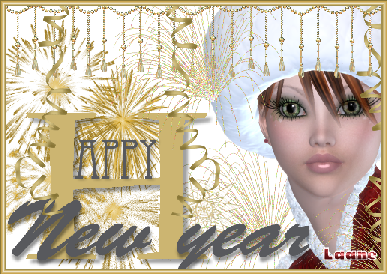"Being a buddhist is for a large part about being nice", said one of my children a while ago.
True.
Care and compassion are the main ingredients of daily life and communication, and all sorts of good behaviour flows from that including forgiveness, understanding and being kind to people one initially doesn't like.
In fact...the "doesn't like" disappears as soon as the person is regarded with an open mind and compassion.
Most unwanted behaviour is caused by experiences people haven't made a choice for.
When we see that, we see a person who is hurt and in pain, and needs care and a friendly face.
That usually stops a chain of bad events and enables that person to heal, at least partially.
The last year we have encountered, as a family, some people who were guided by their willingness to do well.
They were so very willing to do good, that they lost the ability to perceive the good in people.
They wanted everything to fit in their picture and rather than checking their own perception they fitted everything in the matrix in their heads.
It's what happens when people think they have the ultimate truth in their hands.
It's one way of describing what we buddhists say: "Reality is the way we see it."
Teaching children to deal with people like that has been of the largest challenges of last year.
How to deal with people who speak bad about you, who paint a picture about you that's not how you are, who deny the plain facts?
How to deal with people who read into your words something completely different than you have intended?
Ofcourse I gave my children an insight in how people become that way.
People are products of their own history, of their own wants and needs, and of their own ego's.
But I also gave them the power to stay the person they are, to have faith in themselves, to stay pure and clean in their own intentions.
I can't say how often I told them to listen to their inner voice. I have learned these kids have a very clear intuition, and they should not be misguided by wants and needs, by misperceptions are anything else.
They said they didn't trust a person, and so I learned them how to deal with that.
Help came as a surprise by someone who said there was no need to deal directly with that person, they could write down what they had to say if they wanted too.
Help also came from time itself, as they had so much to do for school that they gladly wrote down what was on their hearts, instead of bicycling to town and lose lots of time.
They would have gone to the meeting otherwise.. with the risk of having their words turned again, like happened before and what happened with my own words and behaviour.
I think an ego was hurt a bit, but sometimes it's time for grown ups to grow up.
When talking with the children it was clear they missed something very important in the other person: empathy.
It's the ability to step out of your own frame of mind, your own wants and goals and perceive with an open mind the other person and to understand that person from the way he is, from his own life.
It was amazing to see what my children could do what the grown up couldn't do. Display empathy.
I think it's inborn and disappears when the ego takes over and grows to be a feeding force for the wellbeing of the person.
When we lose touch with our own inner being and strive for wealth and recognition the ego takes over. In certain jobs ego's are regarded to be of more importance than empathy. It's about being on top of other people, I think.
My children have learned that it's not always possible to keep oout of the way of people like that.
They've also seen how they mold their own reality into something they feel comfortable with, or can gain their own egofood with.
It's a kind of warning too.
When a person grows up he's faced with choices about his own person.
By making a choice for a profession it might be a choice for a certain behavioral climate which might go against the way you want to be.
It's a huge choice.
Young people are not always aware they have that choice.
Older people are not always able to face up to that choice.
How about you?
Labels: children, my buddhist path, people


